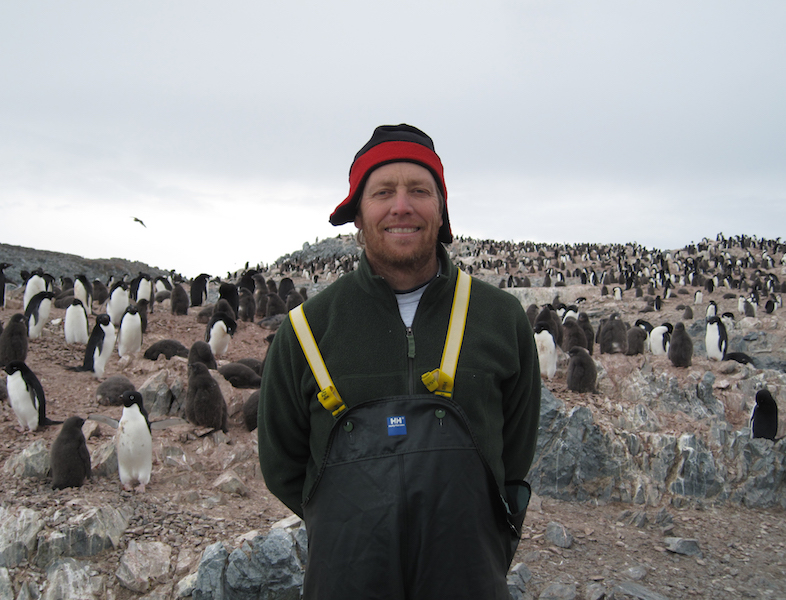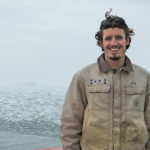Oscar Schofield
Polar Scientist in the Spotlight
Learn about all sorts of careers that polar scientists have as we explore their different research areas through the featured Polar Scientist of the Month.
Oscar Schofield
Professor of Oceanography, Rutgers UniversityWhat do you do?
For Science: I am a biological oceanographer trying to understand biology works in the ocean. I conduct much of my work in ocean surrounding Antarctica. This place is warming due to climate change and this is affecting the biology from the plankton to the penguins. I go to sea on ships and also use robots and satellites in my work.
Outside of Science: I love the beach. I have a farm with chickens-ducks-dogs-cats-and LOTS of strawberries. I am happy person.

What is the best thing about your job?
Doing science is so much fun and I get to have lots of adventures around the world. I also believe the work I do is important. Also, I get to learn things everyday I go to work.
What is the most important tool you use for research?
I am part of the Center of Ocean Observing Leadership (COOL), which is focused on developing new technologies and ocean sensor networks to better document and model the marine system. The COOL group has innovated – and continues to innovate – a range of technologies that I utilize, including remote sensing, radars and autonomous underwater robotics.
My brain and working with my research partners. The most important part of my job is to think about what I am seeing in my science data. Many times the questions we are asking are really complicated and therefore working with other scientists is really important. Many brains working together is better than one brain.
Why is what you do important?
We live on an ocean planet, which structures life on Earth. Despite the importance of the ocean, it largely remains relatively unexplored. Given observations that the ocean is seeing significant change in its physics, chemistry and biology, it is critical that we gain better understanding so we can better understand the trajectory of the Earth system into the future.




